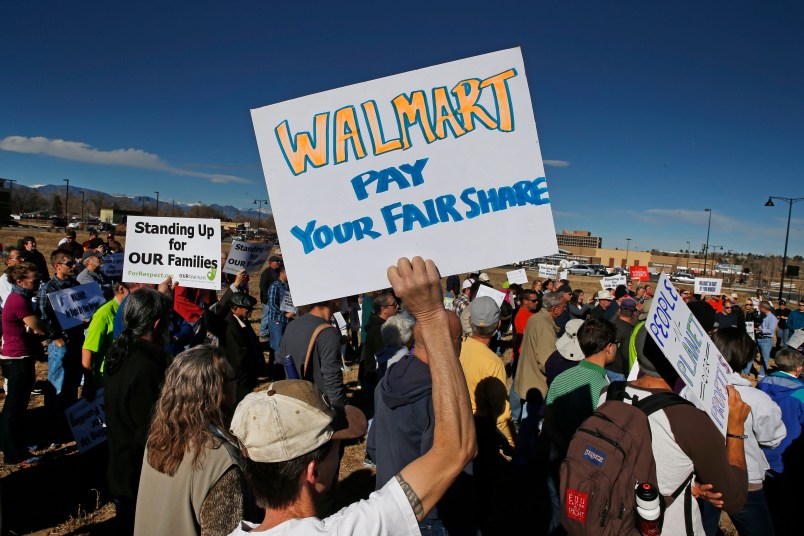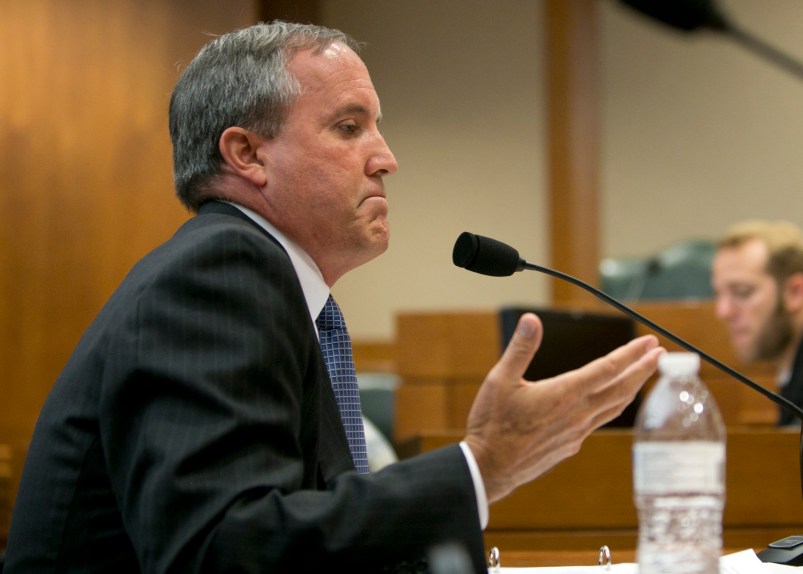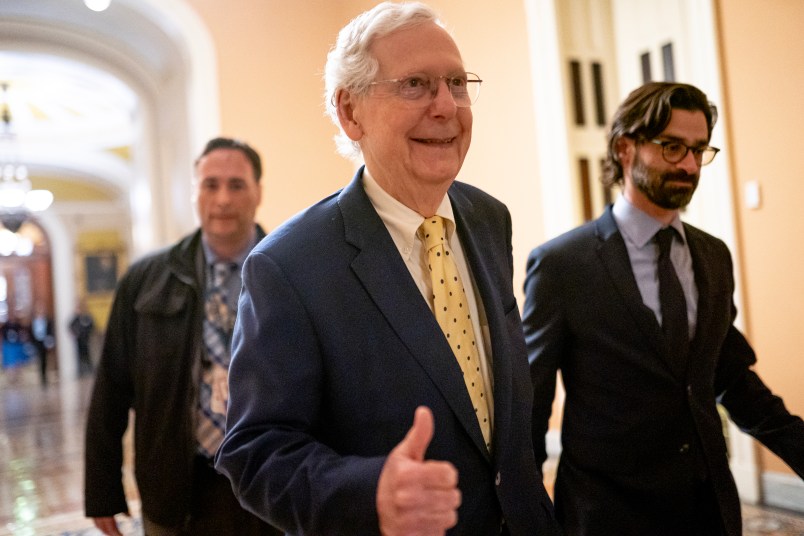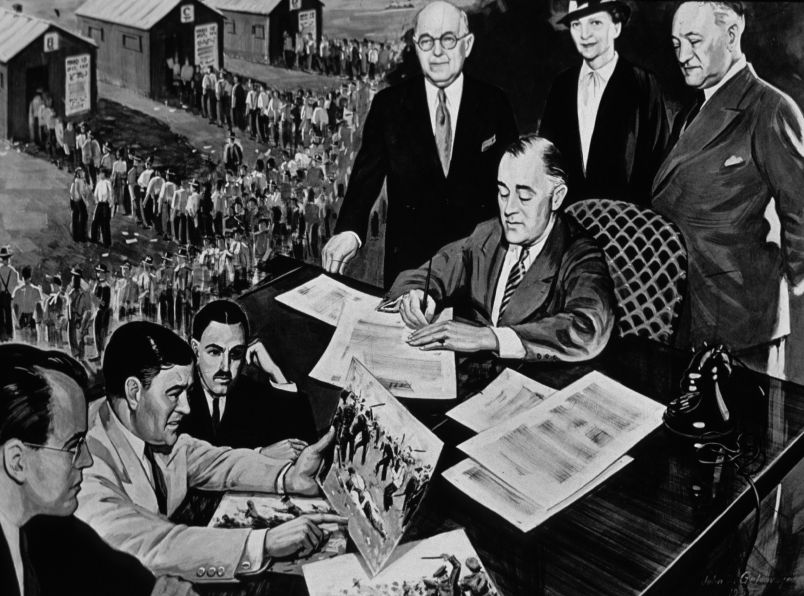This Black Friday, workers are striking at 1,600 Walmart locations for a $15 wage and the end of workplace abuses in a series of strikes. But at the same time, these rights are being undermined, in a legislative chamber miles away, with little input from workers. A new Demos report exposes the increasing political involvement of big retail, and how retailers use the political system to undermine worker rights.
Big retail has dramatically increased the amount of money it spends influencing the political system. Back in 2000, all the big retailers together (Walmart, Costco, Home Depot, Target, Lowe’s and Best Buy) spent a meagre $5 million (in 2013 dollars) buying influence. In 2014, a relatively unimportant midterm election, that number increased six-fold.

Among the big box retailers we examined, the biggest were Walmart and Home Depot, followed by Target and Best Buy. Walmart’s political activities are unsurprising — politicians have richly rewarded the company. A recent study by Americans for Tax Fairness finds that Walmart saves $1 billion a year in tax breaks and avoids taxes on $21.4 billion it holds offshore. Added to that are the $6.2 billion Americans taxpayers subsidize Walmart’s employees with food stamps and other public aid, because Walmart doesn’t pay its workers enough to live. In a recent annual report, Walmart openly admitted that changes to government food stamp programs may hurt its financial performance.

Walmart’s spending on the political system has increased dramatically, with total spending topping $10 million in the last four elections. It’s clear why, the AFT estimates that Walmart could save $7 billion more over the next decade if the corporate tax rate falls to 25 percent.

In addition to Walmart’s spending, the Walton family spends millions on the political system. They’ve also hired a private lobbyist to lobby for changes to the estate tax that now benefit them to the tune of hundreds of millions. In addition the Walton Family Foundation is one of the biggest education funders in the country, and is one of the biggest supporters of the privatization agenda. As the chart below shows, Democrats rarely benefit from the Walton family’s largess.

In fact, Democrats rarely benefit from any of the big retailers. Over the period studied, Republicans got $2 for every $1 given to Democrats for the major retailers. Among the big retailers, only Costco showed a preference for Democrats, while Lowe’s had the largest disparity, favoring Republicans 3.5 to 1.

It’s important to note that these numbers massively understate the influence of big box retailers. Because of bad disclosure laws, we just don’t know that much about corporate spending. We don’t have the foggiest idea what big box retailers are spending on state and local elections. We don’t know how much they pay to be members of organizations like ALEC. We don’t know how much they give to 501(c)6 organizations like the Chamber of Commerce. Walmart, for instance, is a member of the the RATE Coalition, Alliance for Competitive Taxation (ACT) and the Business Roundtable (BRT).
All of this money brings rewards for companies. Retailers lobby on a variety of issues, including tax policy, labor issues, and the terms of international trade. A vast literature shows that these efforts produce returns, often at the expense of other democratic interests. The research firm Strategas maintains an index of the fifty firms that lobbying most intensely. The index has outperformed the S&P 500 every year since 1998. In a comprehensive study of conflicts between lobbying groups and other coalitions, researchers found that business interests prevailed in 9 out of 11 issues in which businesses and labor were opposed. In the 16 cases that pitted business groups against citizen group coalitions, businesses won 9.
Although the vast amounts of money went to lobbying, campaign contributions also produce benefits There is strong evidence that the most important impact of campaign contributions is to increase access to politicians with the intent of setting the political agenda. A study of the telecommunications industry finds that regulators respond to private political spending with regulations that favor the donors. Companies that bid for federal contracts across industries are more likely to be granted those contracts if the bids are complemented by campaign contributions. Big retail normally backs winners: a Demos analysis finds that 81 percent of the 291 candidates that received money from Walmart in 2014 won their election.
What can be done to stop the spread of big money in politics? Over the long-run we need to overturn laws like Citizen’s United that opened the floodgates of money into Congress. But there are also short-term solutions. The Supreme Court explicitly endorsed disclosure as the alternative to campaign contribution limits. On the heels of Citizens United, Congress came within one vote of overcoming a party-line filibuster to pass the DISCLOSE Act. In the absence of Congress, shareholders should demand that corporations either get out of politics, or disclose their donations to organizations like ALEC that they might not approve of. SEC should require this disclosure if Congress won’t.
Publicly financed elections can help candidates not in the pockets of big money get into office, and more states should consider the system. To slow the rise of lobbying states and the federal government should regulate it more strictly. Patrick Flavin finds that states with stricter regulations on lobbying are more politically equal — that is, responsive to voters of all income groups. Policies that help people vote, instead of disenfranchising them, would also go a long way to making the political system more responsive. Americans need to tell Congress that even on Black Friday, government isn’t up for sale.
Catherine Ruetschlin is a Senior Policy Analyst at Demos. Her work has been featured on The New York Times. Sean McElwee is a research assistant at Demos. Follow him on Twitter @SeanMcElwee.









